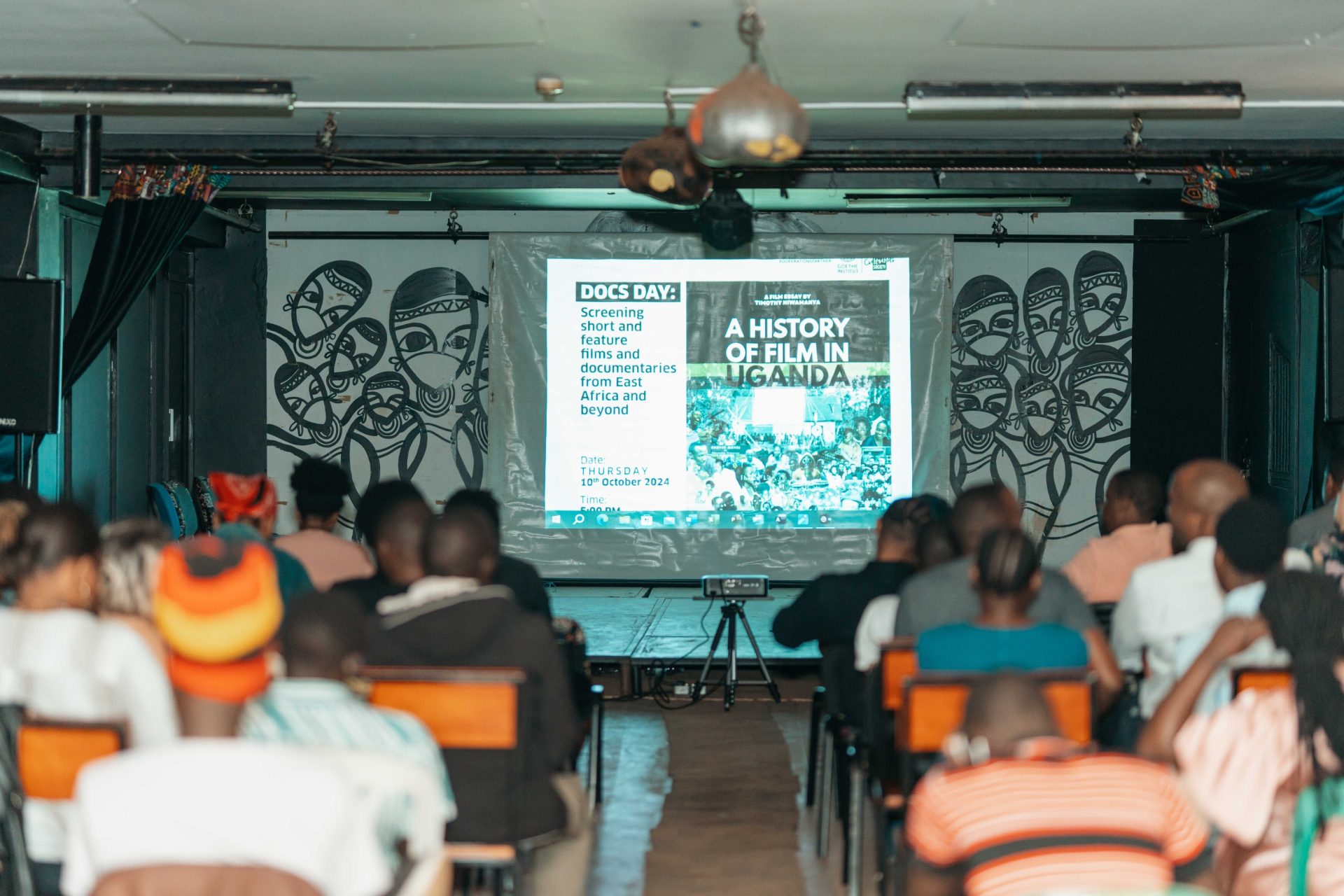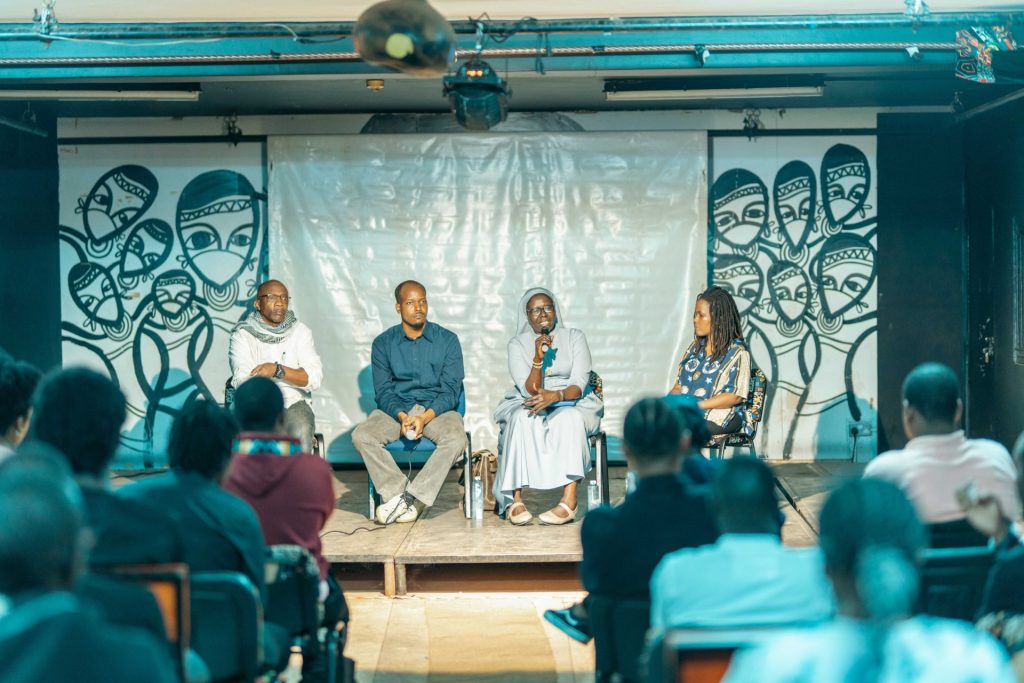A History of Film in Uganda
Home »

‘Filmmakers in the country remain optimistic about the prospects of the film industry and continue to build a number of professional networks in and outside the country. The indie nature of Ugandan cinema offers complete freedom of creative expression and presents brave and innovative filmmakers with the chance to for the first time actively explore their history and culture through film and for the world at large to be exposed to the richness of the narratives from an untapped reservoir of stories kept secret by decades of social and artistic repression in what many call “The Pearl of Africa”.‘ – Except The History of Film in Uganda

From left to right: Panelists Kalundi Serumaga, Timothy Nimanwanya, Sister Dominica Dipio and Sharon Rwakatungu
Timothy Nimanwanya is a Ugandan writer, filmmaker and podcaster based in Kampala, Uganda. He not only teaches course units on African cinema history and World cinema history at Kampala Film School, a subsidiary institution under Kampala University but also has experience in digital and print media both local and international. Such as Uganda’s leading daily newspaper The New Vision, The Kampala Sun, and Cinema Escapist. He has written, produced and directed a neo-noir thriller film titled Askari funded through the Maisha Screenwriting Labs in 2017.
Timothy Nimanwanya reached out to Goethe-Zentrum Kampala/Ugandan German Cultural Society (GZK/UGCS) at the beginning of the year with a proposal for a project called The African Celluloid Histories Project. The project included the creation of a 30-40 minutes video essay on the history of film in Uganda. The video essay gave a detailed overview of the interesting history of film in Uganda. The narrator of the documentary explains the various stages of Uganda’s history and the uprising of cinema in the country. The content of the film follows historical events such as the time before and after colonization and independence. The viewing experience of the documentary was additionally carried by interviews with experts from the cinema bubble. Overall the audience was given great information and insights to the history of film in Uganda.
The film screening was followed by a panel discussion featuring Kalundi Serumaga, Sister Dominica Dipio and Sharon Rwakatungu, who are key scholars in Ugandan art & culture. The discussion was moderated by Sharon Rwakatungu who prepared interesting questions for the panelists. The topics of discussion were very diverse. They covered topics like freedom of speech and what the panelists thought should be presented more or less in Ugandan cinema. Afterwards the audience was encouraged to interact with the panelists and share their questions/thoughts regarding Ugandan cinema. Interesting questions were chosen, like the usage of AI in nowadays cinema, cinematic influences from other countries or how filmmakers balance between making profit out of a movie and not betraying their own values. All in all it was a very enriching and insightful evening!
